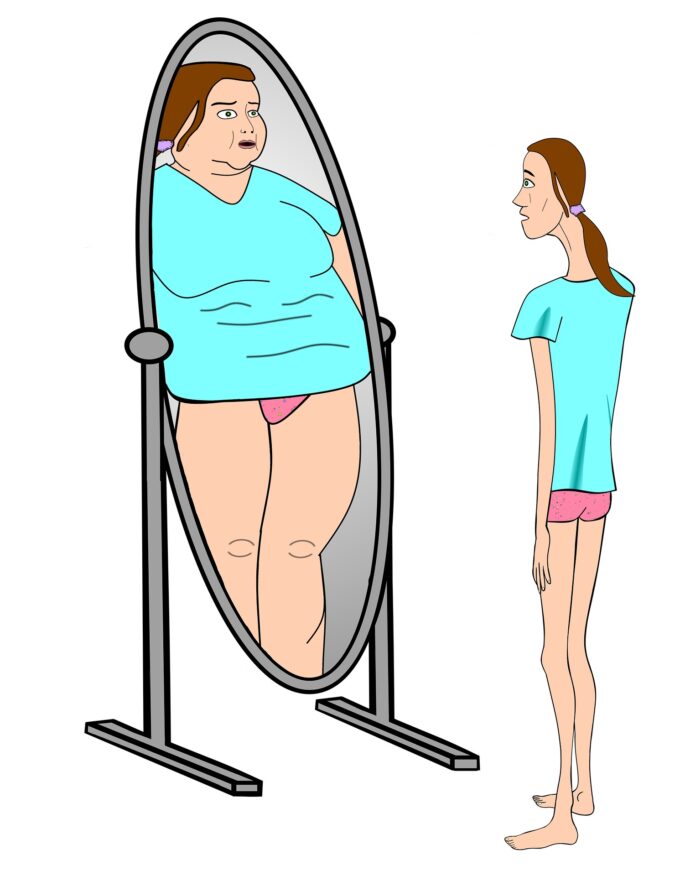
Bulimia nervosa is a serious eating disorder characterized by cycles of binge eating followed by purging. People diagnosed with bulimia have a distorted body image and feel a strong urge to lose weight, leading them to resort to extreme measures that can take a significant toll on their physical and mental health. It is important to recognize the warning signs of bulimia nervosa so that timely help can be sought to begin the treatment process.
Preoccupation with Body Weight
People with bulimia nervosa often place an undue emphasis on their weight and may fixate on losing weight. They may weigh themselves frequently, maybe be annoyed or distressed by minor fluctuations in body weight, and often feel nervous or anxious about mealtimes.
Secretive Eating Behaviors
People with bulimia nervosa may eat large amounts of food in a short amount of time and then try to hide it by purging or exercising excessively. They may also hoard food or steal food from others.
Mood Swings
Frequent mood changes, such as depression or anxiety, can be a warning sign of bulimia nervosa. People with bulimia often feel ashamed and guilty about their eating habits and may experience low self-esteem or feelings of worthlessness.
Dental Issues
Frequent purging can damage the teeth and gums, causing sensitivity and decay. A dentist may notice signs of bulimia nervosa before a healthcare professional does.
Withdrawal from Social Activities
People with bulimia nervosa may begin to withdraw from social activities and events that involve food or may become very concerned with their appearance and begin to avoid social situations altogether.
The Physical Signs of Bulimia Nervosa
Fluctuations in weight
One of the most visible signs of bulimia nervosa is weight fluctuations. This is because individuals with the disorder will often binge on large amounts of food and then immediately attempt to get rid of it through purging. Purging causes water loss and dehydration, which causes shifts in body weight.
Dental problems
Here are some of the dental problems that can occur as a result of bulimia nervosa:
Erosion of tooth enamel: Stomach acid can erode the enamel on the teeth, leading to sensitivity, discoloration, and an increased risk of cavities.
Cavities: Frequent exposure of the teeth to stomach acid can increase the risk of cavities.
Tooth sensitivity: Erosion of the enamel can cause the teeth to become more sensitive to hot, cold, and sweet foods and drinks.
Cracked or chipped teeth: Repeated vomiting can put pressure on the teeth and jaw, which can lead to cracks or chips in the teeth.
Swollen salivary glands: The repeated vomiting associated with bulimia nervosa can cause the salivary glands to become swollen, leading to dry mouth and an increased risk of dental problems.
Swollen glands
The glands in the neck area can also become inflamed as a result of constant vomiting. This can make the jawline and neck appear swollen, which is a common physical sign of bulimia nervosa.
Scars on the fingers
A tell-tale sign of bulimia nervosa is the appearance of scars on the fingers. This is because individuals with the disorder often use their fingers to induce vomiting. The constant contact of the fingers with the throat can lead to cuts or scars.
Fatigue
Individuals with bulimia nervosa often feel tired and fatigued. This is because the body is not getting the nutrients it needs to function correctly. Moreover, constant purging can also lead to weakness and exhaustion.
Bulimia nervosa can have serious effects on both physical and mental health. While the emotional and behavioral signs of this disorder can be hard to spot, recognizing them can help individuals get the help they need. If you or someone you know is displaying any of these signs or symptoms, reach out and seek professional help from a licensed healthcare provider. Early detection and appropriate treatment can help people successfully recover and maintain long-term health and wellness.














